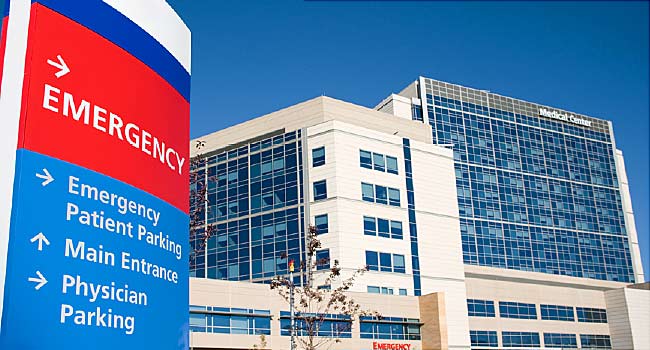Heart Attack Cases at ERs Fall by Half
By Steven Reinberg
HealthDay Reporter
WEDNESDAY, May 20, 2020 (HealthDay News) — U.S. emergency rooms are seeing about half as many heart attack patients as usual — and researchers suspect the new coronavirus is the reason why.
It’s not that fewer people are having heart attacks, doctors say. Rather, it’s fear of getting COVID-19 keeping people from hospitals.
And the consequences can be deadly.
“I’m certainly not convinced that the true rate of heart attacks going down explains even a large part of this finding,” said lead researcher Dr. Matthew Solomon, a cardiologist at Kaiser Permanente in Oakland, Calif.
“We definitely think it has something to do with the public’s response and fear about coming to the hospital and getting infected,” he said.
Solomon noted that after other major events, such as 9/11 and earthquakes, the rate of heart attacks went up.
“We know there’s a lot of public anxiety and stress and fear, and those things themselves could potentially be causing a higher rate of heart attack,” Solomon said.
“There are also a lot of reports that the emergency medical services are finding higher rates of death at home, and we worry that a good portion of those could be patients having heart attacks and strokes who did not seek care,” he added.
For the study, Solomon and his colleagues used data from Kaiser Permanente Northern California, a health care plan that includes more than 4.4 million patients. They compared the weekly rates of ER treatment for heart attacks before and after March 4, the date of the first death from COVID-19 in northern California.
Looking at records from Jan. 1 through April 14, they found that the weekly rate of hospitalization for heart attacks dropped 48% during the coronavirus period.
Moreover, fewer people with preexisting heart disease or prior heart attack went to the emergency room during the COVID weeks of March 4 through April 14, compared to the pre-COVID time frame, the researchers found.
A similar decrease for the COVID period was seen when the researchers looked at the same weekly periods in 2019.
Continued
People should not be afraid to go to hospitals, Solomon said.
“Hospitals might be one of the safest places in America right now, compared to the grocery store and other places,” said researcher Dr. Alan Go, director of comprehensive clinical research at Kaiser Permanente.
“There are some reports that find that transmission of COVID within our hospitals is incredibly low,” he said.
Solomon agreed. “In all of our hospitals across the country, people have been working incredibly hard, creating triage systems to keep patients safe and to treat respiratory patients in one area and non-respiratory patients in another area,” he said.
Anyone with symptoms of a heart attack or stroke should call 911, just as they would in normal times, Solomon said.
Dr. Gregg Fonarow, director of the Ahmanson-University of California, Los Angeles Cardiomyopathy Center, said this phenomenon is occurring across the country.
“There have been a number of recent reports suggesting that during the COVID-19 pandemic, there has been a significant decrease in the number of patients presenting to the hospital with acute cardiovascular conditions, including heart attacks and stroke,” said Fonarow, who wasn’t part of the study.
The findings further raise concerns that people with serious cardiovascular conditions are not seeking necessary care, and this may be contributing to the increase in cardiac arrest and deaths at home, he said.
It appears some people are delaying calling 911 and suffering fatal consequences in their home, Fonarow said.
“It is critical for any individual who thinks they may be having a heart attack or stroke to call 911 at the first signs or symptoms. Doing this quickly can save one’s life, and emergency rooms and hospitals are safe,” he said.
The report was published May 18 in a letter in the New England Journal of Medicine.




